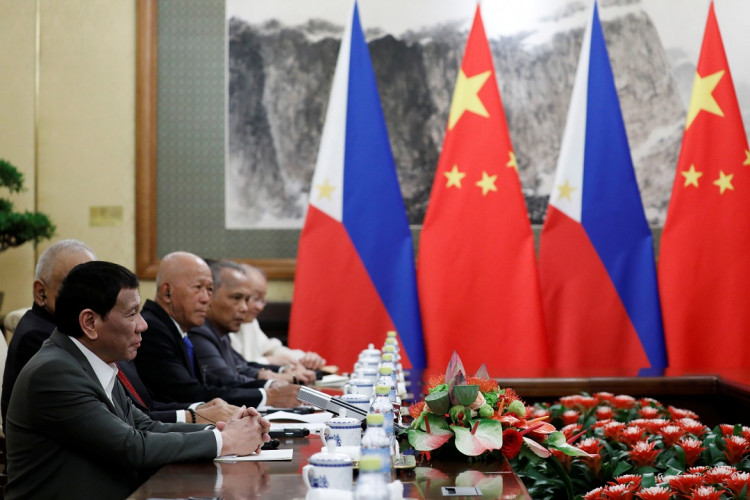The South China Sea, a crucial maritime region entangled in a web of territorial disputes, has witnessed a significant escalation of tensions. The Philippines has leveled serious accusations against China for employing aggressive tactics against its fishing vessels, marking the latest development in a long-standing territorial dispute involving several countries.
In an alarming incident, the Philippines alleged that the Chinese Coast Guard used water cannons to block three of its government vessels from delivering essential supplies to Filipino fishermen near Scarborough Shoal. This area has been a flashpoint since Beijing's seizure in 2012, leading to continuous harassment of Philippine fishermen by Chinese boats.
The National Task Force for the West Philippine Sea, in a vehement condemnation, described China's actions as "illegal and aggressive." The footage of the incident showed Chinese ships directing powerful water blasts at the Philippine vessels, an act seen as a blatant violation of international norms.
Reacting to the incident, U.S. Ambassador to the Philippines, MaryKay Carlson, took to social media to express solidarity with the Philippines, denouncing China's behavior as a violation of international law and a danger to lives and livelihoods. She reaffirmed U.S. commitment to a free and open Indo-Pacific region.
This development comes amid a backdrop of increasing friction between China and the Philippines over sovereignty claims, exacerbated since Ferdinand Marcos Jr.'s assumption of the Philippine presidency. Notably, the Philippines has recently conducted joint air and sea patrols with the U.S. and Australia, signaling a strengthening of military alliances in the face of Chinese assertiveness.
China, on its part, has asserted control over what it claims as its territorial waters, justifying its actions as "control measures" against the intrusion of Philippine vessels into these waters. Beijing's expansive claims over the South China Sea, which an international tribunal invalidated in 2016, have led to the construction of artificial islands and a heightened military presence in the disputed waters.
The situation remains tense, with the Philippines planning to send a Christmas convoy of around 40 boats to Thitu island and troops garrisoned on a warship in the Second Thomas shoal on December 10. The convoy's purpose is to distribute gifts and provisions, but it also serves as a symbol of Philippine presence in the contested region.
The Scarborough Shoal, crucially located within the Philippines' 200-nautical mile exclusive economic zone, has become emblematic of China's territorial ambitions in the South China Sea. The region is a vital conduit for over $3 trillion in annual ship-borne trade, with claims from various countries including Vietnam, Indonesia, Malaysia, and Brunei.
As tensions continue to rise in the South China Sea, the international community watches closely, gauging the potential implications for regional stability and global maritime trade. The Philippines' strong stance against China's latest maneuvers highlights the deepening complexities and the urgent need for a peaceful resolution in one of the world's most contested maritime regions.





